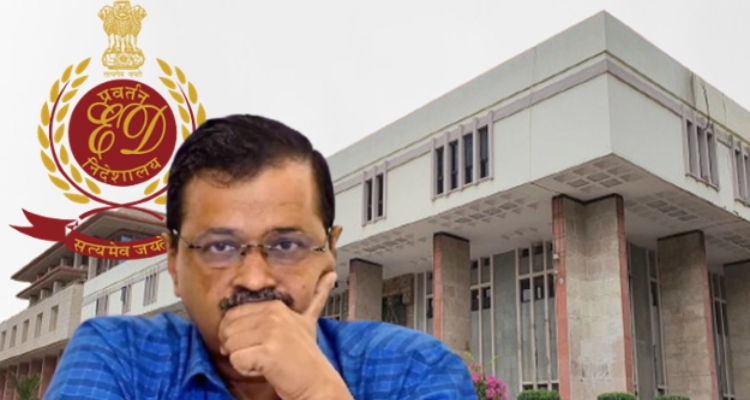
The Delhi High Court on Friday stayed the trial court’s bail order for Chief Minister Arvind Kejriwal until it hears the Enforcement Directorate’s plea challenging the relief granted to him in the money laundering case related to the alleged excise scam.
The Enforcement Directorate (ED) brought its plea against the trial court’s order before a vacation bench of Justices Sudhir Kumar Jain and Ravinder Dudeja. The court stated that it would receive the case file shortly and instructed that the trial court’s order should not be executed until then. The matter has been scheduled for a hearing later in the day.
ED’s Plea
Additional Solicitor General (ASG) S V Raju, representing the ED, requested a stay on the trial court’s order issued late on June 20, arguing that the agency was not given sufficient opportunity to present its case. Raju criticized the trial court for not allowing adequate time for arguments and for not considering their plea to defer the order for 48 hours to approach higher courts.
“I was not allowed to fully argue. I was not given 2-3 days to file written submissions. This is unacceptable. On merits, we have a strong case. The trial court hurriedly pronounced the judgment in half an hour,” Raju contended. “I make these allegations with full seriousness.”
Raju also referenced Section 45 of the Prevention of Money Laundering Act (PMLA), emphasizing that the public prosecutor should have been given an opportunity to present their case, which he claimed was denied.
“The order must be stayed and the plea heard as soon as possible. That order cannot be allowed to remain even for a day,” the ASG insisted.
Appearing for the Delhi chief minister, senior advocates Abhishek Singhvi and Vikram Chaudhari opposed the ED’s plea. They argued that the ED’s allegations were incorrect and expressed dismay at the lack of acceptance from the opposing side.
“The noise and heat will not resolve this issue,” Singhvi remarked. He cited Supreme Court precedents asserting that cancelling or reversing bail is fundamentally different from granting bail.
Chaudhari highlighted that Kejriwal had been granted interim bail by the Supreme Court until June 1 for election campaigning, following which he surrendered on June 2 and has remained in Tihar Jail since. He noted that the trial court had denied interim bail on June 5, citing various health conditions cited by Kejriwal.
Responding to their arguments, Justice Jain assured that the case file would arrive within 10-15 minutes, after which they could commence their arguments.
The Controversial Arrest
On March 21, Arvind Kejriwal was taken into custody by the ED, shortly after his petition seeking protection from arrest was denied by the Delhi High Court.
When delivering the order on Thursday, the trial court released Kejriwal on a personal bond of Rs 1 lakh and imposed specific conditions, including that he refrain from obstructing the investigation or influencing witnesses. The judge also instructed Kejriwal to appear before the court as needed and cooperate with the investigation.
On May 10, the Supreme Court granted interim bail to Kejriwal until June 1 to campaign in the Lok Sabha elections, stipulating that he surrender and return to jail on June 2. Kejriwal surrendered to Tihar jail authorities on June 2 and has remained there since.
On June 5, the trial court denied Kejriwal interim bail, which he had requested citing various health conditions.




